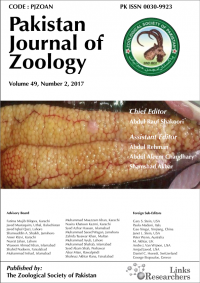Antibacterial Activity and Tolerance towards Heavy Metals by Endolithic and Epilithic Bacteria Isolated from Rocks of Nathiagali, Lower Himalaya, Pakistan
Antibacterial Activity and Tolerance towards Heavy Metals by Endolithic and Epilithic Bacteria Isolated from Rocks of Nathiagali, Lower Himalaya, Pakistan
Barkat Ali1,2, Wasim Sajjad1,2,3, Imran Khan1, Muhammad Rafiq1, Sahib Zada1, Aamer Ali Shah1 and Fariha Hasan1,*
ABSTRACT
To share on other social networks, click on any share button. What are these?










